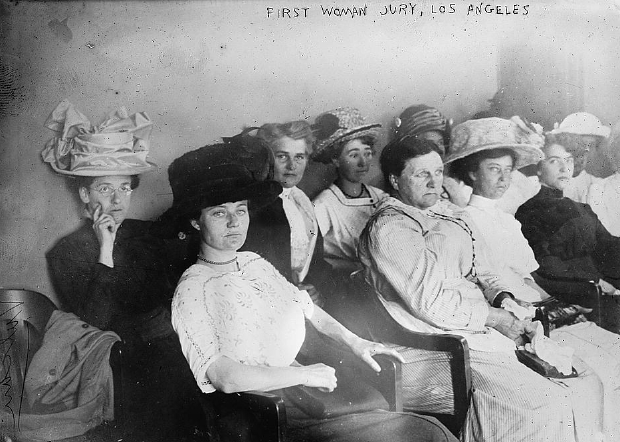

A century ago, these 12 ladies, fabulous hats and all, sat in a courtroom in Los Angeles and decided the fate of newspaper editor A.A. King. The charge was obscenity: in his paper, The Watts News, King had quoted an insult hurled at him by a city councilman. (According to an article in the next day's Tacoma Times, the insult in question "cast aspersions on King's parentage, with the condemnation of the Creator prefixed.")
At the time of the trial, American women were still eight years away from being able to vote in national elections. But California granted suffrage in a special election on October 10, 1911 -- just 23 days before the the trial began -- and an obscenity trial seemed a good opportunity to call on female judgment.
Fortunately for King, these newly empowered women weren't especially fainthearted: they deliberated for just 20 minutes before finding him not guilty. "Our verdict did not mean that we approved of such language," the youngest juror, 22-year-old Nellie Moomau, told the Tacoma paper. "It meant that we believed the defendant was honest in his endeavor to aid the public when he printed the article." She added, "It isn't half so shocking to read such language in the privacy of our homes as it is to hear it on the streets."
Jennie Rothenberg Gritz, a former senior editor at The Atlantic, is now a senior editor at Smithsonian magazine.
David Lynch on Where Great Ideas Come From
Mantras Before Math Class